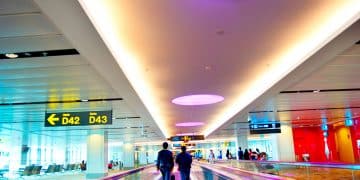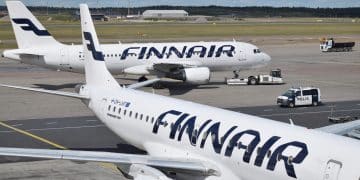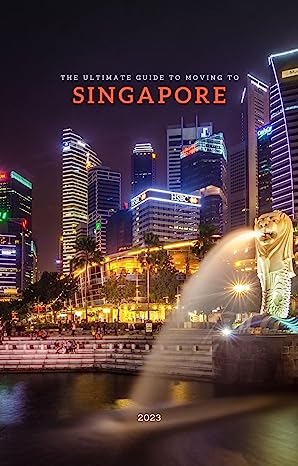Do People Speak English In Singapore? Unravelling The Linguistic Landscape
English is one of the four official languages in Singapore, reflecting the country’s pragmatic approach to communication and business, which necessitates a common language. While the country’s linguistic landscape is diverse, English serves as a lingua franca, allowing for interaction among the different ethnic groups and serving as a bridge to the international community. In Singapore, English is commonly used in government, business, and education, illustrating its role as a key language within the nation.
The presence of English in Singapore is also seen in the bilingual education policy, where most citizens are taught English alongside their mother tongue, be it Malay, Mandarin, or Tamil. This has resulted in a population that is largely fluent in English, with a significant percentage using it as their main language. In addition to Standard English, there is also a colloquial form known as Singlish, which incorporates elements of various local languages and dialects.
Despite the widespread use of English, Singapore celebrates its linguistic diversity, ensuring that other languages and dialects have their place in society. This commitment to multilingualism is evident in public services, media, and cultural activities, where various languages are promoted and preserved. Through this balanced approach, Singapore provides an example of how English can coexist with other languages in a multilingual society.
Linguistic Landscape of Singapore
In Singapore, the linguistic environment is marked by diversity and an official multilingual policy. English is one of the four official languages and serves as the main language of administration, business, and education. It is widely spoken and understood, making it a lingua franca in the multicultural city-state.
The other official languages consist of Malay, Mandarin, and Tamil. Malay holds the symbolic title of the national language, celebrating the indigenous culture and heritage. The Malay population typically speaks this language, and Bahasa Melayu, its standardised form, is used in national ceremonies.
Mandarin is the predominant language of the Chinese community, which constitutes a significant part of the population. While Mandarin is emphasised, other Chinese dialects such as Hokkien, Teochew, Cantonese, and Hainanese continue to be spoken, especially by the older generations. Over the years, there has been a shift with more Singaporeans using Mandarin at home, although this trend has seen a slight reversal recently.
Tamil, used by the Tamil-speaking Indian community, utilises the Tamil script. Other Indian languages like Malayalam also find their place in the diverse linguistic landscape.
An interesting linguistic phenomenon unique to Singapore is Singlish, a creole language that blends English with elements from Malay and various Chinese dialects. This informal language punctuates the everyday speech of many locals.
Signage across Singapore reflects this multilingual character, often incorporating Roman and Tamil scripts. The languages of public signs, especially in tourist areas, tell a story of linguistic diversity and cultural inclusion.
The Role of English in Singapore
In Singapore, English holds the status of a national language and is spoken by over 48.3% of the population, highlighting its importance in the city-state. It serves as a lingua franca, enabling communication across a population that is linguistically diverse. Singapore’s brand of English, known as Singapore English, encompasses both a Standard version, largely aligned with British English, and a colloquial form named Singlish.
Singapore’s bilingual education policy is foundational in promoting the use of English. English operates as the main medium of instruction across educational institutions. This policy ensures that students are proficient in English alongside another mother tongue language, fostering a bilingual populace.
Singapore English has distinctions from its British counterpart, despite sharing grammatical similarities. It has evolved locally, with Singlish emerging as a colloquial variant interwoven with local slang and expressions. Singlish reflects the cultural identity of Singaporeans, yet there have been initiatives such as the Speak Good English Movement aimed at encouraging the use of Standard English.
In the educational context, the role of English is prominent. English-medium schools are the norm, and proficiency in English is often associated with enhanced opportunities both academically and professionally. The government’s support for English extends to ensuring that international students can participate fully without facing language barriers.
Table: English Language in Singaporean Context
| Aspect | Details |
|---|---|
| Status | National Language |
| Medium | Primary medium of instruction in schools |
| Variants | Standard English and Singlish |
| Education Policy | Bilingual Education Policy |
| Movement | Speak Good English Movement |
Therefore, English is not just a subject taught in schools but a pivotal element of daily communication, education, and the bridging of cultural divides in Singapore.
Cultural and Ethnic Influences
In the context of Singapore, language serves not only as a tool for communication but also as an indicator of cultural and ethnic history. The diverse ethnic backgrounds contribute to the linguistic tapestry, influencing the use and status of English in the country.
Ethnic Groups and Languages
Singapore is home to a multitude of ethnic groups, primarily the Chinese, Malays, and Indians. Among these groups, the Chinese form the majority demographic, accounting for approximately 74.3% of the population. Additionally, there is a significant presence of Indian immigrants, with origins from regions like Southern India and Sri Lanka. The variety of languages spoken by these ethnic groups mirrors the broader Asian context, deriving mainly from China, India, and Malaysia.
- Chinese: Languages such as Mandarin, Hokkien, Teochew, Cantonese, and Hakka.
- Malay Culture: The Malaysian language is a cornerstone, contributing to the cultural ethos of the country.
- Indian: A focus on languages such as Tamil, Hindi, Punjabi, and Bengali from different parts of India.
Over the years, English has seen an incline in usage within households across these ethnic groups, highlighting a shift towards a common linguistic ground.
Language and National Identity
The rise of English in Singapore is closely tied to the notion of national identity in a multicultural setting. Data from various studies suggest a growing preference for English as a lingua franca amongst the different ethnic groups. This preference is evident in public spaces, where up to 71% of respondents from diverse ethnic backgrounds agree on the use of English for inter-ethnic interactions.
Through the fusion of different languages and cultural expressions, a unique variant known as Singlish has emerged, which integrates elements from Chinese, Malay, and Indian dialects. This linguistic phenomenon, while not officially endorsed, reflects the complex interplay of languages in the social fabric of Singapore.
The investment in English as a unifying language suggests a strategic decision to foster effective communication in a demographic rich with diversity. It carries the weight of forging a national identity that encapsulates the collective experience of its citizens while maintaining respect for individual cultural heritages.
Language Policies and Education
In Singapore, the language policies within the education system have been a defining factor in the nation’s approach to bilingualism. The government firmly supports the concept, mandating a bilingual education policy that underscores the teaching of English alongside a ‘mother tongue’—Mandarin, Malay, or Tamil.
Bilingual Education Policy:
- Primary Objective: Mastery of English, the language for international communication, and a mother tongue, fostering cultural identity and ethics.
- Curriculum Structure: Compulsory English as a ‘First Language’ and the mother tongue as a ‘Second Language’ for all students.
The ‘Speak Mandarin Campaign’, launched in the late 1970s, sought to encourage the Chinese community to shift from various dialects to Mandarin, thus streamlining language use and promoting linguistic cohesion. This policy not only facilitates communication but also contributes to the educational success of students, as seen in international benchmarks.
Outcomes of Language Policies:
- Education System: Prepares students to engage with global systems and cultures.
- National Service: Enhances communication across different ethnic groups, promoting unity.
- Students: Develop proficiency in English without losing touch with their cultural roots.
The strategic emphasis on English within Singapore’s education system has turned the city-state into an attractive global hub for business and international relations. Simultaneously, the reinforcement of mother tongue languages plays a vital role in preserving the diverse ethnic heritage and ensuring cultural continuity.
Sociolects and Varieties of English
In Singapore, the English language exhibits a spectrum of varieties, each distinct in grammar, vocabulary, and accent. The more formal end, known as Singaporean Standard English, aligns grammatically with Standard British English. It is used in official settings and by the media.
On the other end is Singapore Colloquial English, commonly referred to as Singlish. Instead of being a mere slang, Singlish is a creole with a unique grammatical structure. It is an English-based creole that emerged from the interaction of various ethnic languages, reflecting the multicultural society of Singapore.
Here is a brief overview of the features:
- Accent: Singaporean English has a distinct pronunciation influenced by the multilingual backdrop of its speakers.
- Grammar and Spelling: While Singaporean Standard English adheres to British norms, Singlish utilises a different grammatical structure that may include alterations in tense and plurality markers.
- Vocabulary: Singlish involves a blend of words from English and other local languages, enriched with expressions like lah, which is often tagged onto the end of sentences for emphasis.
- Slang and Colloquialisms: Conversational Singlish includes a rich collection of slang terms and phrases unique to the region.
There is a range between these two extremes where language use may be mixed. This gradient is described as the English Speech Continuum in Singapore. The more colloquial form can be classified as the basilect, while the standard form is the acrolect, with a mesolect in the middle representing a mix of both.
| English Type | Features |
|---|---|
| Acrolect | Close to British English, used in formal contexts. |
| Mesolect | Mix of standard English and local features. |
| Basilect | Full suite of Singlish characteristics, least like standard English. |
Acquisition and use of these forms are influenced by factors like education, profession, and social setting. Overall, they provide insight into the linguistic identity and practices of English usage in Singapore.
Impacts of Language on Society and Commerce
Singapore, an island nation in Southeast Asia, has witnessed profound societal and commercial transformations through the integration of English into its linguistic environment. As a premier global trade hub, the adoption of English facilitates commerce, offering undeniable economic benefits.
- Trade: English, serving as the lingua franca, bridges communication with international markets. It simplifies negotiations, contracts, and networking, vital to Singapore’s trade-centric economy.
- Population: The diverse population benefits from English as a common medium, aiding in societal cohesion and cultural exchange.
- Commerce: Businesses operate more efficiently when internal and cross-border communication is streamlined through a commonly understood language.
- Economic Benefits: Mastery of English widens job prospects for residents and attracts multinational corporations seeking a proficient workforce.
In its role as a connector among ethnic groups, English aids in preserving the island’s heritage—with the National Anthem available in Malay (using Rumi script), alongside English, this dual availability underscores its unifying function.
Linguists note the local English lexicon’s uniqueness, replete with loanwords from various native tongues, enhancing its richness while marking Singapore’s brand of multilingualism. Tourist attractions like the Merlion not only symbolise the fusion of Singapore’s past and present but also highlight the accessible and inclusive nature of commerce and communication in the city-state.
In summary, English acts as a driving force behind Singapore’s societal stability and commercial success, reinforcing its position as a critical trading point within Southeast Asia.
What is the difference between Singlish and English?
In Singapore, the English language has developed into two distinct forms: Standard Singapore English and Colloquial Singapore English, widely known as Singlish. Standard Singapore English is grammatically aligned with Standard British English, while Singlish has its unique characteristics.
Grammatical Structure:
- Standard Singapore English: Follows British English grammar rules.
- Singlish: Has a relaxed grammatical structure, often omitting words like “is” and “are.”
Vocabulary:
- Standard Singapore English: Uses vocabulary consistent with British English.
- Singlish: Integrates words and expressions from Chinese, Malay, and Indian languages.
Pronunciation:
- Standard Singapore English: Mirrors British English pronunciation.
- Singlish: Exhibits a range of pronunciation variations, some influenced by local ethnic languages.
Intelligibility:
- Standard Singapore English: Easily understood by English speakers globally.
- Singlish: May be challenging to understand for non-locals due to its colloquial terms and slang.
Usage:
- Standard Singapore English: Predominantly used in formal settings like government, business, and education.
- Singlish: Common in informal situations among friends and family.
Recognition:
- Standard Singapore English: Recognised internationally as part of the wider English-speaking community.
- Singlish: Recognised within Singapore and by others familiar with the local culture.
In essence, while both forms coexist in Singapore’s linguistic landscape, they serve different functions and hold different cultural values within the community. Standard Singapore English maintains an international presence, while Singlish reflects the rich linguistic diversity found in Singapore’s everyday life.
What Language Should I Speak in Singapore?
When visiting Singapore, one can communicate effectively using English, as it is one of the most commonly used languages in the country. Visitors should be prepared to encounter a high level of English proficiency; it’s employed in business, government, and by the general population.
Official Languages Singapore recognises several official languages:
- English
- Malay
- Mandarin
- Tamil
English Usage For most situations, English suffices:
- Government: English is utilised for administration.
- Education: Instruction is conducted in English.
- Business: English is the standard for commerce.
In everyday interaction, English is widely spoken. However, the prevalence of ‘Singlish’, a local creole, is notable. It blends English with elements from various local languages and may present some comprehension challenges.
Other Languages In multicultural settings, one might also hear:
- Malay, which holds a special status as the national language.
- Mandarin and Tamil, reflecting the ethnic diversity.
Language for Travellers For travellers, English is often enough. Acquaintance with a few phrases in the other official languages or Singlish could enhance the social experience.
In Summary
- English is the most practical language for visitors.
- Appreciation for the local linguistic landscape enriches interactions.
- An openness to Singapore’s linguistic diversity can be beneficial.
Do Singaporeans Speak More English or Chinese?
In Singapore, both English and Chinese have significant roles in society, but the prevalence of each language varies depending on the context.
English is the main language of instruction in schools and is widely used as the lingua franca among the ethnically diverse population. It serves as a bridge across various communities and is the predominant language used in business and administration.
Chinese, specifically Mandarin, is one of the other official languages and is commonly spoken at home among the Chinese Singaporean community, which makes up a majority of the population. Beyond Mandarin, other Chinese dialects like Hokkien, Cantonese, and Teochew are spoken, though less frequently.
In households, the use of English has been increasing. Recent figures show a rise in English as the primary household language, with a significant percentage of Singaporeans using it in their homes. This increase suggests that English is becoming more prevalent domestically, alongside its already-established use in public and professional settings.
- Use in Public and Workplaces: English
- Instruction in Education: English
- Common Household Languages: English, Mandarin
The bilingual education policy of Singapore encourages proficiency in both English and a mother tongue, which for the Chinese community is Mandarin. Hence, most Singaporeans are bilingual, and many are equally comfortable conversing in both English and Mandarin.
Given these trends, while Mandarin retains cultural and familial significance, English is often the more commonly spoken language in broader societal engagements.
| Language | Usage Context |
|---|---|
| English | Primary language in education, business, and inter-ethnic communication. |
| Chinese (Mandarin) | Predominant at home among Chinese Singaporeans and for cultural purposes. |
In conclusion, both English and Mandarin are integral to Singaporean society, but English may have a larger presence in daily interactions and official domains.
Can you work in Singapore if you only speak English?
In Singapore, English serves as the main language of business and education. For expatriates and foreign workers, this means that speaking English is often sufficient to live and work in the city-state. Most Singaporeans are bilingual, fluently speaking English alongside their mother tongue, which could be Mandarin, Malay, or Tamil.
Language Requirements for Employment:
- Teaching Roles: English proficiency is expected, especially if you are teaching the language.
- Customer Service: Good command of English is favoured for interaction with a diverse clientele.
- Technical Professions: Proficiency in English is typically mandatory due to internationally standardised processes.
Work Sectors and Expectations:
- For roles in multinational companies or sectors such as finance, technology, and commerce, English is the primary working language.
- However, in certain public-facing positions, an ability to understand local dialects or languages can be a benefit, though not strictly necessary.
Local Linguistic Landscape:
Singapore’s workforce comprises over 48% English speakers, with the prevalence of “Singlish” – a colloquial form of English with local influences. While this unique variety is commonly used in casual settings, Standard English predominates in professional environments.
Foreign workers can operate effectively with English as their sole language, but a recognition of the local language spectrum is beneficial for deeper integration into the workplace culture. Knowing English in Singapore is, therefore, largely adequate for professional purposes.
Can you get a job in Singapore with only English?
In Singapore, English is one of the four official languages and serves as the lingua franca for business and trade. The prevalence of English makes it possible for individuals who are proficient in the language to find employment across various industries. The Singaporean workforce is generally bilingual, with most locals having a good command of English, alongside their mother tongue which could be Mandarin, Malay, or Tamil.
Proficiency in English: A Key Requirement
- English is the language of instruction in schools and is ubiquitously used in government, business, and the sciences.
- Job advertisements commonly list English proficiency as a requirement, illustrating its importance in the workplace.
Job Opportunities:
- Service Industry: Tourism, hospitality, and retail sectors frequently require English-speaking employees to serve a global clientele.
- Professional Fields: Finance, law, and technology, where international dealings are common, also look for individuals with strong English skills.
Work Culture:
- Multicultural work environments are typical, where English is customarily the language of corporate communication.
- Employees are expected to be proficient in English to foster clear communication within diverse teams.
In summary, possessing strong English language skills is a significant asset when seeking employment in Singapore. While additional language skills might be advantageous in certain roles, English alone is often sufficient to effectively navigate the job market in Singapore. It is advisable for job seekers to be mindful of the skill requirements for their specific industry when considering employment opportunities in the country.
Is it hard to find a job as a foreigner in Singapore?
Finding employment in Singapore as a foreigner involves several steps and can present challenges. Eligibility is central to the job search, with specific minimum salary requirements in place for obtaining work passes such as the Employment Pass and S Pass.
The Employment Pass is designed for foreign professionals, managers, and executives. Candidates must earn at least SGD 3,600 per month. Alternatively, the S Pass is for mid-skilled staff and requires a minimum monthly income of SGD 2,400.
Skills and industry demand significantly influence the ease of job acquisition. Some industries may have a higher demand for skilled foreign workers, while others may be more competitive or give preference to local residents.
Networking and understanding the professional culture are important. The island nation’s economy is growing, but success also hinges on a candidate’s ability to connect with potential employers and navigate local business norms.
On the practical side, preparing a well-crafted resume and cover letter tailored to the Singaporean job market is essential. Utilising job search engines can also enhance a job seeker’s prospects.
| Key Considerations | Detail |
|---|---|
| Job Market Research | Understanding industry demand and cultural norms. |
| Work Visa Requirements | Meeting salary benchmarks for work passes. |
| Professional Networking | Building connections within desired sectors. |
| Resume and Cover Letter | Adapting to Singaporean expectations. |
| Job Search Engines | Identifying opportunities across various platforms. |
In summary, while there are various pathways to employment for foreigners in Singapore, it requires careful preparation and an understanding of work pass requirements and job market conditions.




